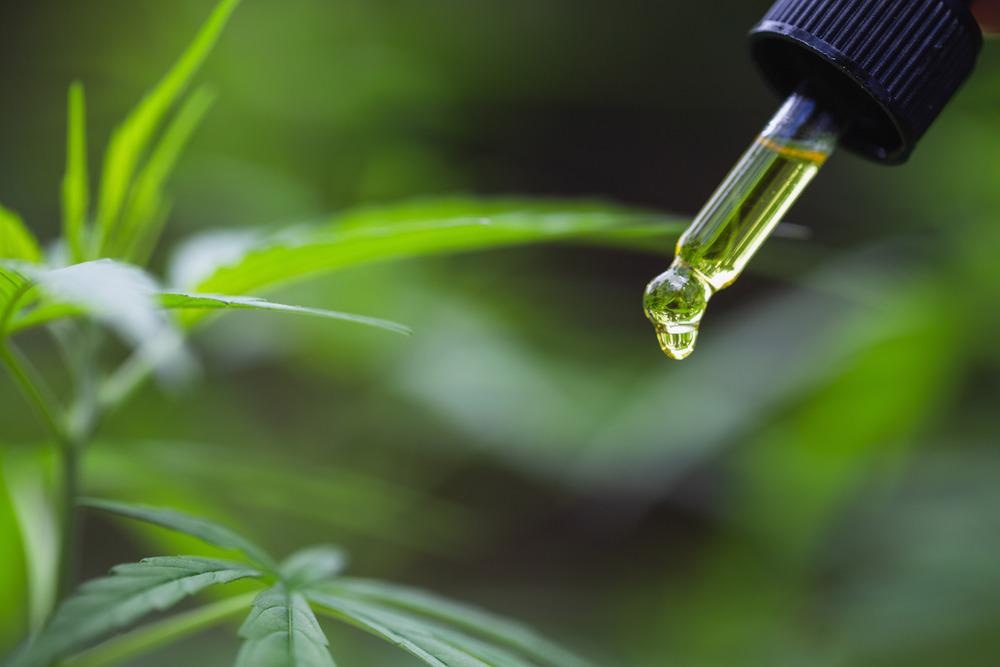The use of heroin and other opioids has reached unprecedented levels in the US, resulting in an epidemic of opioid addiction. Although opioid addiction is a widespread problem, there are few treatment options available, meaning that rates of drug use fail to be tackled, and tens of thousands of people are dying each year.
Could CBD help opioid users overcome addiction?
Recently, a study published in the American Journal of Psychiatry revealed the potential therapeutic benefit of cannabidiol (CBD) in reducing drug craving and anxiety in individuals recently abstinent from heroin use. Further research will help develop our understanding of how it may be used to tackle the opioid addiction epidemic in the US and around the world.
The problem of opioid addiction
70,630 people died from an opioid overdose in the US in 2019. In the past year, 1.6 million Americans have suffered from an opioid use disorder and 50,000 people tried heroin for the first time. 14,480 people died in the last year from a heroin overdose.
The data highlights the significant opioid problem the US is facing. In 2017, the U.S. Department of Health and Human Services (HHS) declared it to be a public health emergency and initiated its 5-Point Strategy to Combat the Opioid Crisis.
While opioid addiction often conjures up images of people using heroin, synthetic opioids such as fentanyl, and pain relievers that are legally available via prescription are also highly addictive and contribute to the opioid crisis. Following the increased prescription of these drugs, more people across the US became addicted and began misusing prescription and non-prescription opioids.
Prior to this, pharmaceutical companies had calmed the concerns of the medical community by reassuring them that opioid pain relievers were safe, with little chance of patients becoming addicted to them. Unfortunately, the predictions of the pharmaceutical industry were drastically off the mark, and the misuse of prescription opioids has added fuel to the fire of the growing opioid crisis in the US. It is even estimated that 40% of opioid overdose deaths are attributed to the use of a prescription opioid.
Now, new research is emerging that indicates that CBD may be effective in lowering drug craving and anxiety in those recovering from opioid addiction. The initial findings give hope that CBD, a substance that is already determined safe for use in humans, could help tackle the opioid crisis and potentially contribute to preventing tens of thousands of deaths.
CBD reduces drug cue-induced craving and anxiety
A group of researchers at Mount Sinai, New York, ran an exploratory double-blind randomized placebo-controlled trial to investigate the effect of CBD administration on drug cue-induced craving and anxiety in those with a heroin use disorder while abstinent from drugs. The study, published in the American Journal of Psychiatry in 2019, also explored the impact of CBD on the patients’ cognition, physiological status, and their positive and negative affect.
The results showed that, in comparison with the placebo, patients receiving acute CBD administration experienced significant reductions in both cravings and anxiety. Researchers explained that this was due to the presentation of salient drug cues with acute CBD administration that were replaced by neutral ones with the placebo.
Additionally, CBD administration reduced the drug cue-induced physiological measures of both heart rate and salivary cortisol levels. No adverse effects were reported, supporting the safety of CBD use.
Overall, the results present CBD as a potential treatment option for opioid use disorders, of which there are currently limited options. Further research is needed, however, given that CBD is widely available and already used to treat several other illnesses and diseases, approval for use for opioid use disorders may be rapid.

Image Credit: Tinnakorn jorruang/Shutterstock.com
How safe is CBD?
CBD is the non-psychoactive compound in cannabis. Unlike THC, CBD does not produce a sensation of feeling high. CBD can be extracted from hemp or cannabis without any traces of THC. Already, the compound is being used to treat anxiety, depression, seizures, chronic pain, migraines, inflammation, nausea, and inflammatory bowel disease.
CBD is rapidly being legalized around the world, although it is CBD is still considered a Schedule I drug under federal law in the US. Studies have demonstrated its general safety in short-term and long-term use, with common side effects being fairly mild, such as appetite changes, fatigue, weight loss, dizziness, and diarrhea.
Given that CBD is fairly new on the scene as a therapeutic option, more research is needed to gain a deeper understanding of its potential side effects. However, the mechanisms via which CBD works is fairly well understood which further supports the therapeutic use of the compound.
Overall, CDB could potentially offer a vitally needed treatment option for opioid use disorders. It could help to reduce the number of people currently addicted to this class of drugs, as well as prevent unnecessary deaths from overdoses.
Sources:
- Hurd, Y., Spriggs, S., Alishayev, J., Winkel, G., Gurgov, K., Kudrich, C., Oprescu, A., and Salsitz, E., 2019. Cannabidiol for the Reduction of Cue-Induced Craving and Anxiety in Drug-Abstinent Individuals With Heroin Use Disorder: A Double-Blind Randomized Placebo-Controlled Trial. American Journal of Psychiatry, 176(11), pp.911-922. https://pubmed.ncbi.nlm.nih.gov/31109198/#affiliation-1
- Wiese, B. and Wilson-Poe, A., 2018. Emerging Evidence for Cannabis' Role in Opioid Use Disorder. Cannabis and Cannabinoid Research, 3(1), pp.179-189. https://www.ncbi.nlm.nih.gov/pmc/articles/PMC6135562/
- What is the U.S. Opioid Epidemic? [Online]. U.S. Department of Health and Human Services. Available at: https://www.hhs.gov/ (Accessed 14 October 2021)
Further Reading